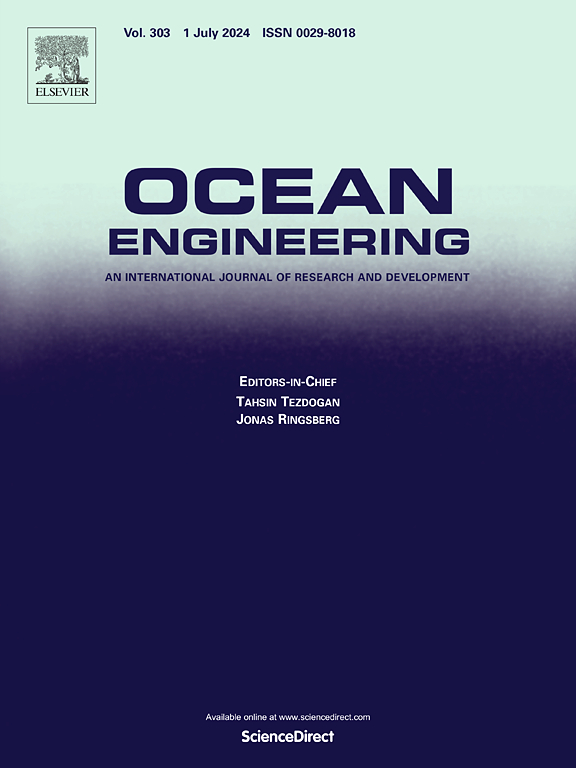增强型数字孪生框架,用于在长期多海条件下实时预测半潜式平台的疲劳损伤
IF 4.6
2区 工程技术
Q1 ENGINEERING, CIVIL
引用次数: 0
摘要
随着近海石油和天然气资源的开发进入更深的水域,对海洋结构的影响变得越来越严重,从而导致重大的结构损坏。这凸显了海洋结构健康监测的重要性。数字孪生技术在海洋工程领域的出现极大地推动了海洋结构监测技术的发展,提高了结构健康监测的智能化和实时性。本文提出了一种创新的数据驱动数字孪生框架,并将其应用于半潜式平台在长期多海条件下的实时疲劳损伤预测。值得注意的是,本研究引入了一种新颖的应力孪生方法和高精度后处理模块,将现场监测数据与高保真仿真模型结果相结合。这种整合在物理结构和数字对应结构之间建立了双向联系,从而能够实时绘制结构热点应力图,并进行更准确的疲劳损伤预测。所提出的框架在中国南海的半潜式平台上进行了验证,结果证明了其在海上结构管理方面的实用性和变革潜力。本文章由计算机程序翻译,如有差异,请以英文原文为准。
Enhanced digital twin framework for real-time prediction of fatigue damage on semi-submersible platforms under long-term multi-sea conditions
As the development of offshore oil and gas resources progresses into deeper waters, the impact on marine structures becomes increasingly severe, resulting in significant structural damage. This highlights the importance of health monitoring for marine structures. The emergence of digital twin technology in ocean engineering has greatly advanced the development of marine structure monitoring technologies, improving the intelligence and real-time capabilities of structural health monitoring. This paper proposes an innovative data-driven digital twin framework, applied to the real-time fatigue damage prediction of the semi-submersible platform under long-term multi-sea conditions. Notably, this study introduces a novel stress twinning method along with a high-precision post-processing module that combines field monitoring data with high-fidelity simulation model results. This integration establishes a bidirectional connection between the physical structure and its digital counterpart, enabling real-time mapping of structural hotspot stresses and more accurate fatigue damage predictions. The proposed framework was validated on the semi-submersible platform in the South China Sea, and the results proved its practicality and transformative potential in offshore structure management.
求助全文
通过发布文献求助,成功后即可免费获取论文全文。
去求助
来源期刊

Ocean Engineering
工程技术-工程:大洋
CiteScore
7.30
自引率
34.00%
发文量
2379
审稿时长
8.1 months
期刊介绍:
Ocean Engineering provides a medium for the publication of original research and development work in the field of ocean engineering. Ocean Engineering seeks papers in the following topics.
 求助内容:
求助内容: 应助结果提醒方式:
应助结果提醒方式:


